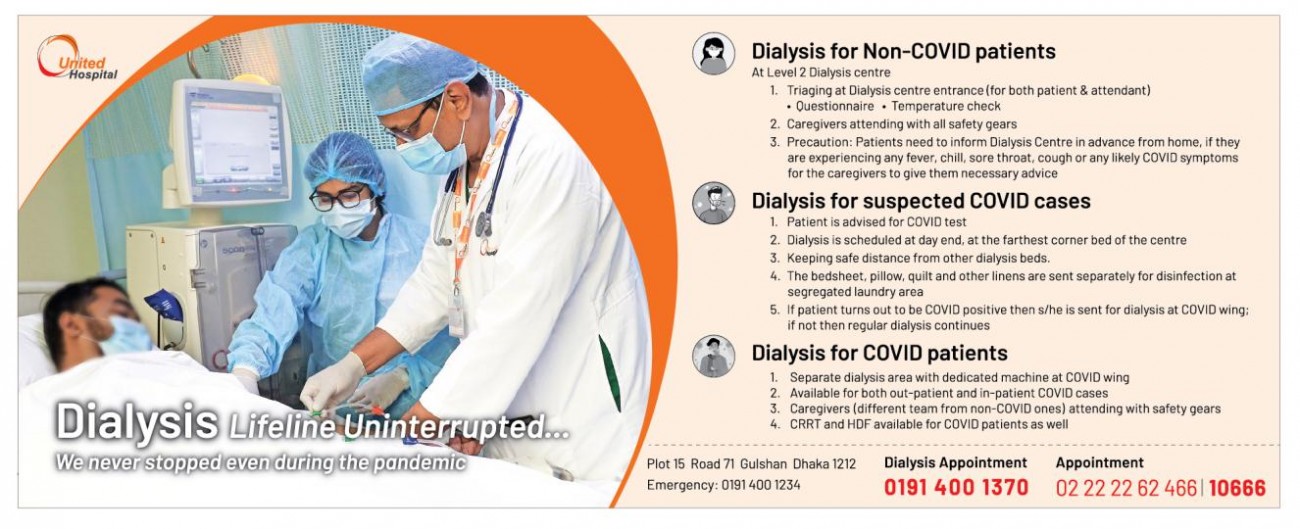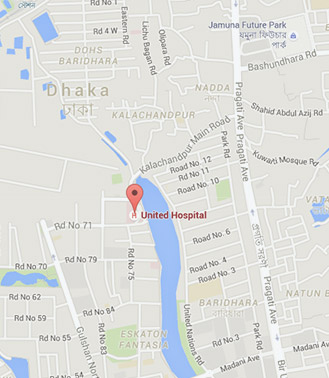Dialysis for CKD patients during COVID-19 pandemic

Older adults and those with underlying medical conditions are at a much higher risk for severe illness when infected with COVID, this includes individuals with CKD (chronic kidney disease). Individuals who are on dialysis or who have received a kidney transplant will have weaker immune systems than the general population, which can leave them more vulnerable to COVID infection. Adults who have CKD stage 5 but are not on dialysis or have not had transplant, who are over 70 and are on any form of immunosuppression or have been on one in the past or who has autoimmune inflammation of kidney, are also at very high risk and clinically extremely vulnerable to COVID 19.
"It is vital that patients with CKD communicate regularly with their doctors and should also take precautions to ensure they limit contact with individuals who could be sick. It is extremely important that those receiving dialysis continue to go to all of their dialysis sessions" says Prof Nurul Islam, Chief Consultant Nephrology and Director Renal Care Centre of United Hospital.
"Dialysis patients are at a high risk for serious complications from the virus. Hence it is very important for these patients to choose a safe dialysis centre," says Prof Islam.
To protect dialysis patients from the coronavirus, United Hospital Dialysis Center follows internationally accepted protocols. Taking temperatures at check-in to check for fever and using questionnaires for asking patients and their attendants who may have had contact with someone who is being checked for COVID-19 or who have symptoms of COVID-19, are routinely done at its dialysis center. All the patients and their attendants mandatorily need to wear masks there. The caregivers at all point attend the patients with protective safety gears. Signs are put at the entrance to let patients know, they should tell the staff if they have respiratory symptoms. Information are given to brief patients and attendants about hand hygiene (how to keep hands clean) and other ways to stay safe; anyone with signs or symptoms of infection are not allowed to enter the dialysis center.
Patients are always briefed to call ahead to report dialysis center if they experience any COVID like respiratory or other symptoms so they can be given necessary advice by caregivers. Triaging is done to keep COVID suspect patients who may have the disease, away from others who don't. This means a patient with COVID like respiratory or other symptoms will be dialyzed at a bed at the farthest corner of the center, six feet away in all directions from healthy patients. The linen, bed sheet, towel, quilt and pillows of that bed are sterilized and cleaned in segregated separate laundry area.
COVID positive patients are dialyzed in separate earmarked area with dedicated machine and dedicated staff at a different level of the hospital. Dialyzing patients, suspected or confirmed for having COVID-19, along with the staff caring for them, are grouped in the same unit. Hemodiafiltration (HDF) and Continued Renal Replacement Therapy (CRRT) are available for COVID patients as well.
"In this COVID pandemic several of my patients asked me, should I continue to go to my dialysis treatments? To him and to all others my reply was, yes, you must go to all your dialysis treatments, missing even one dialysis can make you very sick," says Dr Tanveer Bin Latif, Consultant Nephrologist of United Hospital.
During the pandemic shutdown, many who were on dialysis and who also contracted COVID-19 were denied dialysis treatment because of non-availability of service or inadequate caregivers at many hospitals; however United Hospital did not stop providing dialysis service for a single day even then.
At United Hospital Dialysis Center, being a COVID-safe facility, those with no symptoms should be able to go for regular scheduled treatments. If one has a confirmed case of COVID-19, or has symptoms of COVID-19, or believes he may have been exposed to the coronavirus, then a call to dialysis center prior to scheduled appointment is advised, to let them decide where and when the next dialysis should be scheduled.




